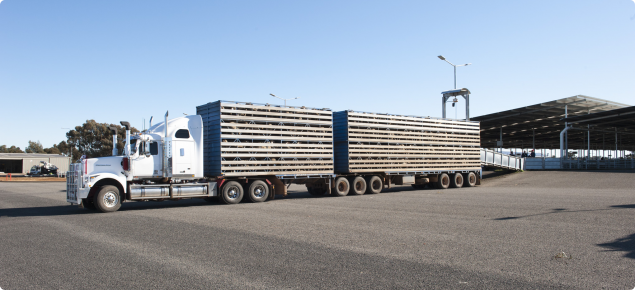The Transport Regulations implement the standards set out in two Australian Animal Welfare Standards and Guidelines, to ensure the welfare of sheep and cattle during land transport, and at saleyards and depots. They apply to sheep and cattle at all stages of the transport process, including mustering, assembling, holding at a livestock handling facility (e.g. yards, saleyards, depots), selecting, loading, holding on a vehicle while the vehicle is stationary, transporting, unloading and spelling.
Many of the requirements in the Transport Regulations are similar to the recommendations in existing Western Australian codes of practice relevant to transport and saleyards, and the Meat and Livestock Australia (MLA) publication ‘Is the Animal Fit to Load?’ (revised 2019).
Frequently asked questions and a short flyer have been produced that provide additional information on the Transport Regulations.
Amendments
The Transport Regulations have been amended to insert a new defence to the existing offence of loading a livestock animal that is unfit to undertake a journey. This new defence will be available to a livestock transporter who is charged with an offence under regulation 33(2), if the livestock transporter can prove that they took all reasonable steps to ensure that the livestock animal was assessed immediately before it was loaded to determine whether it was unfit to undertake a journey. The amendment came into effect on 5 December 2020.
Enforcement of the Transport Regulations
Under the Transport Regulations, animal welfare inspectors will have new options for response to non-compliance.
Until now, allegations of non-compliance with the Animal Welfare Act 2002 (the Act) were addressed through charges for cruelty, which were decided by the courts. In contrast, non-compliance with the Transport Regulations can be dealt with by an infringement notice with fines ranging from $500 to $750. If non-compliance with the Transport Regulations is referred to the courts, penalties of up to $15,000 will apply.
More serious incidents that affect the welfare of animals may still be the subject of a prosecution for cruelty under the Act.
The Department of Primary Industries and Regional Development will work with industry stakeholders to promote awareness of the new regulations and understanding of any changes under them.
Consultation
The development and finalisation of the Transport Regulations was achieved after broad consultation with the community and industry.
The department released the draft Livestock Regulations for public consultation on 17 December 2019. This consultation closed on 28 February 2020.
As part of the consultation process, the department received 14 written submissions, as well as 15 responses to an online survey. A consultation summary report and all written submissions are available online.
For more information on the Transport Regulations, contact animal.welfare@dpird.wa.gov.au


